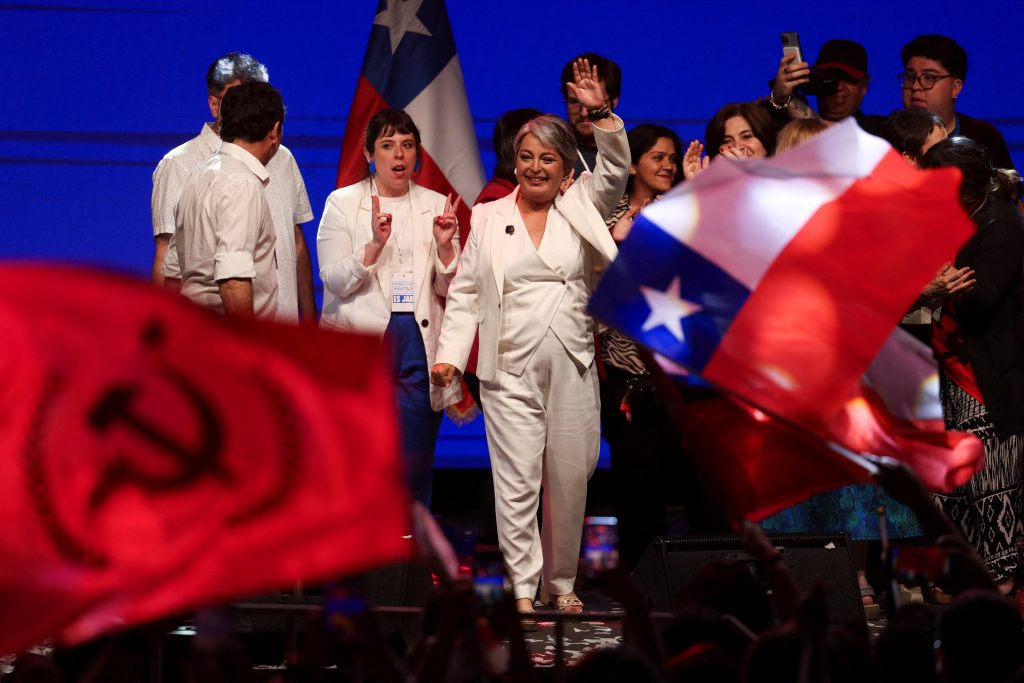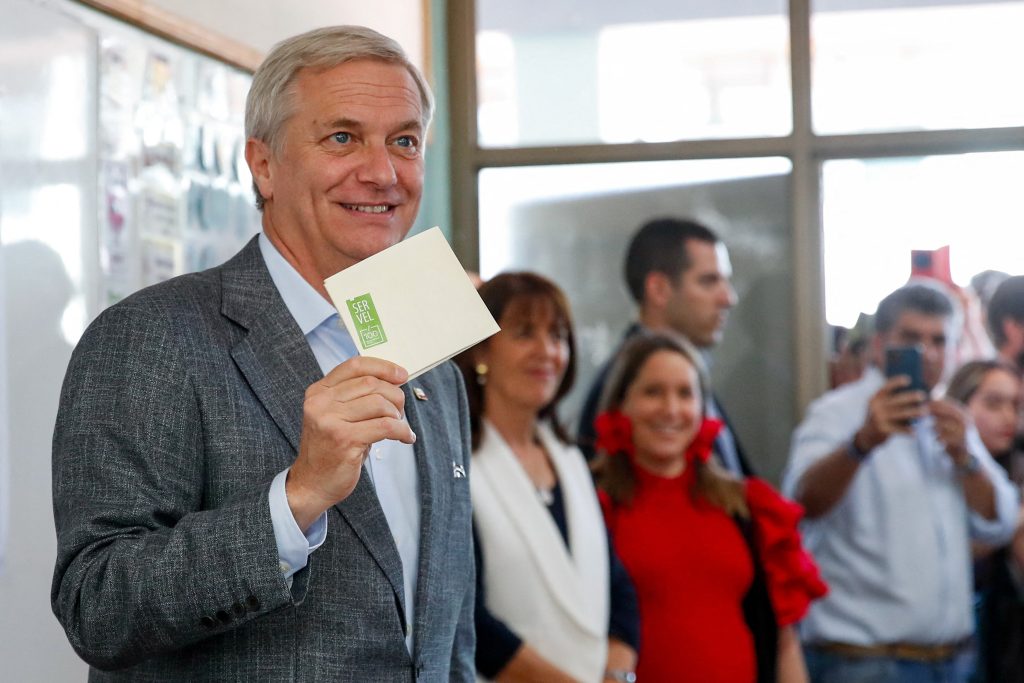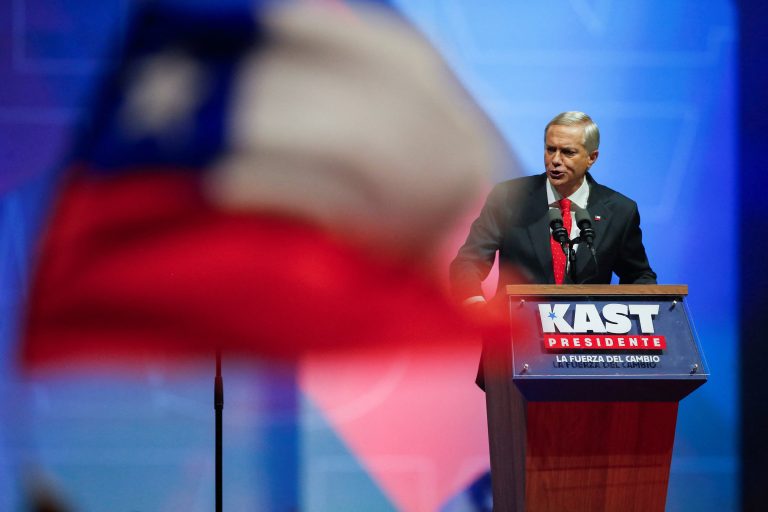In the first round of the presidential elections held on 16 November, the communist Jeannette Jara won 26.85 percent of the vote. She thus went through to the second round, always with the right-wing candidate José Antonio Costa, who polled 23.92 per cent of the vote.
In addition to the presidential elections, parliamentary elections were held in Chile on the same day. Only the Castro-led electoral coalition, Change for Chile (Cambio por Chile), consisting of Costa's Republican Party of Chile, the Christian Social Party and the National Libertarian Party, significantly strengthened its position in the National Congress compared with the situation before the general elections.
However, Casta's coalition did not win a majority and will have to look for allies to push for reforms. However, as Chile is a presidential republic, who is inaugurated as the country's new President on 11 March 2026 will be crucial to the success of one or other of these initiatives.
Since in December 2022 the Chilean parliament approved an amendment to the constitution that restored compulsory participation in national elections after a ten-year hiatus, this year's elections are the first in a decade with compulsory participation. Nevertheless, less than 15 percent of eligible voters did not take part in the elections - a fine of 33 thousand pesos (roughly 30 euros) will not be imposed on them.

A clash of two worlds
The country is plagued by a growing influx of migrants from neighbouring countries and a related rise in crime, which the ruling political parties have so far been unable to counter. As a result, according to Guillermo Holzmann, a political analyst at the Universidad de Valparaíso, "the traditional political parties in Chile are in crisis".
"A sharp rise in murders, kidnappings and extortion over the past decade has sown terror in Chile, one of the safest countries in Latin America," the Times of Israel assessed the situation with more than 340,000 migrants.
Although a member of the Chilean Communist Party came first in the second round, her victory is by no means certain, as the right-wing vote was split between several candidates and many voters are expected to lean towards Casto in the second round.
He describes the current president, Gabriel Boricua, as a puppet in the hands of the communists. During the election campaign, Kast is emphasising the preservation of family values and tackling the rise in crime, particularly associated with Haitian and Venezuelan migrants.
By contrast, Jara intends to introduce voluntary registration for those without a criminal record if she wins the presidential election, a move her opponents consider weak in the current climate. The leader of the Communist camp also wants to abolish banking secrecy and reduce the gap between rich and poor.
Party cadre
At the age of 14, Jara joined the Communist Youth of Chile, from which her first husband, with whom she conceived her only child, came. Among other things, Jara's party is known for its sympathy for Cuban dictator Fidel Castro, and on the 30th anniversary of the death of communist revolutionary Che Guevara, Jara, on behalf of her party , prepared a grand commemoration event.
"We want to pay great tribute to the Cuban Revolution, its values and principles. And perhaps most importantly: this will be the biggest event of the Chilean left in recent years... We want this to be the beginning of what we can build together. It is the greatest tribute we can pay to Che Guevara," Jara declared in 1997.
As Minister of Labour and Social Affairs - the first communist minister since the country's return to democracy in 1990 - she introduced a reduction in the working week from 45 to 40 hours from 2022 and initiated a reform of the private pension system.

German father
Her opponent, a lawyer and politician also known by the initials JAK, is the son of Michael Kast, an immigrant from Bavaria. He was a member of the German Hitler Youth and in August 1942 joined the National Socialist German Workers' Party (NSDAP), of which German Chancellor Adolf Hitler was president. Caste's political opponents are thus also accustomed to working with the Nazi narrative in Chilean politics.
Kast is a fervent Roman Catholic, a father of nine and a right-winger with undisguised sympathies for Chile's right-wing dictator Augusto Pinochet. During his reign, Kast's brother Miguel (formerly Michael) was president of the Central Bank of Chile.
Rain over the capital
In 1970, Chile held a general election: both the US CIA and the Soviet KGB were invested in a favorable election outcome for themselves. In the end, thanks to the more active involvement of the Soviet secret service, the election was won by the Communist Salvador Allende by a margin of less than 1.5 percent, a victory that was confirmed by the National Congress. He was the first democratically elected Marxist in Latin America.
Allende artificially raised wages, leading to shortages of goods and inflation reaching hundreds of percent by 1973. At the same time, Allende's Popular Unity communists resorted to nationalising some businesses, which only worsened the country's economic situation.
On 11 September 1973, the slogan 'It's raining on Santiago' was heard over the Chilean army's radios, launching a military coup led by the non-partisan divisional general Augusto Pinochet.
'It is the duty of those who understand the danger of communism to avert its spread and to protect the values and stability of the nation,' declared Pinochet two years after the successful coup, in which he was indirectly supported by the CIA.
Before handing over to a democratically elected successor in 1990, the dictator revamped the country's economy, developed its infrastructure and dramatically reduced crime, making Chile the safest country on the South American continent.
However, since he came to power through a military coup, and since his establishment brought about the deaths of three thousand members of the left-wing opposition, he has gone down in Chilean history as a controversial president, and his legacy is now a politician's mantra, which is being brandished by both his left-wing opponents, such as Jara, and his right-wing supporters, such as Kast.
Chile is the world's largest producer of lithium after Australia, and there is no equal to this country in copper mining. In connection with its status as one of the most stable states in the region, Chile and its elections are thus also of interest to world leaders, although none of the presidential candidates has yet been labelled pro-Russian or pro-Western by the press.
